The Huayan Temple in Chongqing is a beautiful, off-the-beaten-path temple to visit, and takes about 2-3 hours to peruse the whole area. If you go during a weekday, you won’t have to deal with any crowds and can have the grounds almost completely to yourself.
It also isn’t just a temple, but rather a whole park that features some nice views, a beautiful recently built bridge, Huayan Cave, and a lotus pond. You can even get some interesting views of a ferris wheel and a few other random amusement park rides. I have yet to understand why they’re nearby.
The park is nicely equipped with signs in both Mandarin and English explaining basic aspects of each site, giving you a little bit of useful knowledge as well. When I went there were no tour guides available in any language.
In general, the park is well kept. The paths are constantly being swept and both Huayan Cave and Huayan Temple are very well maintained. There are a few sections throughout that are a little less-than ideal (parts of the lotus pond), and some areas that are behind buildings have some trash. Overall, however, the park is a beautiful spot to visit.
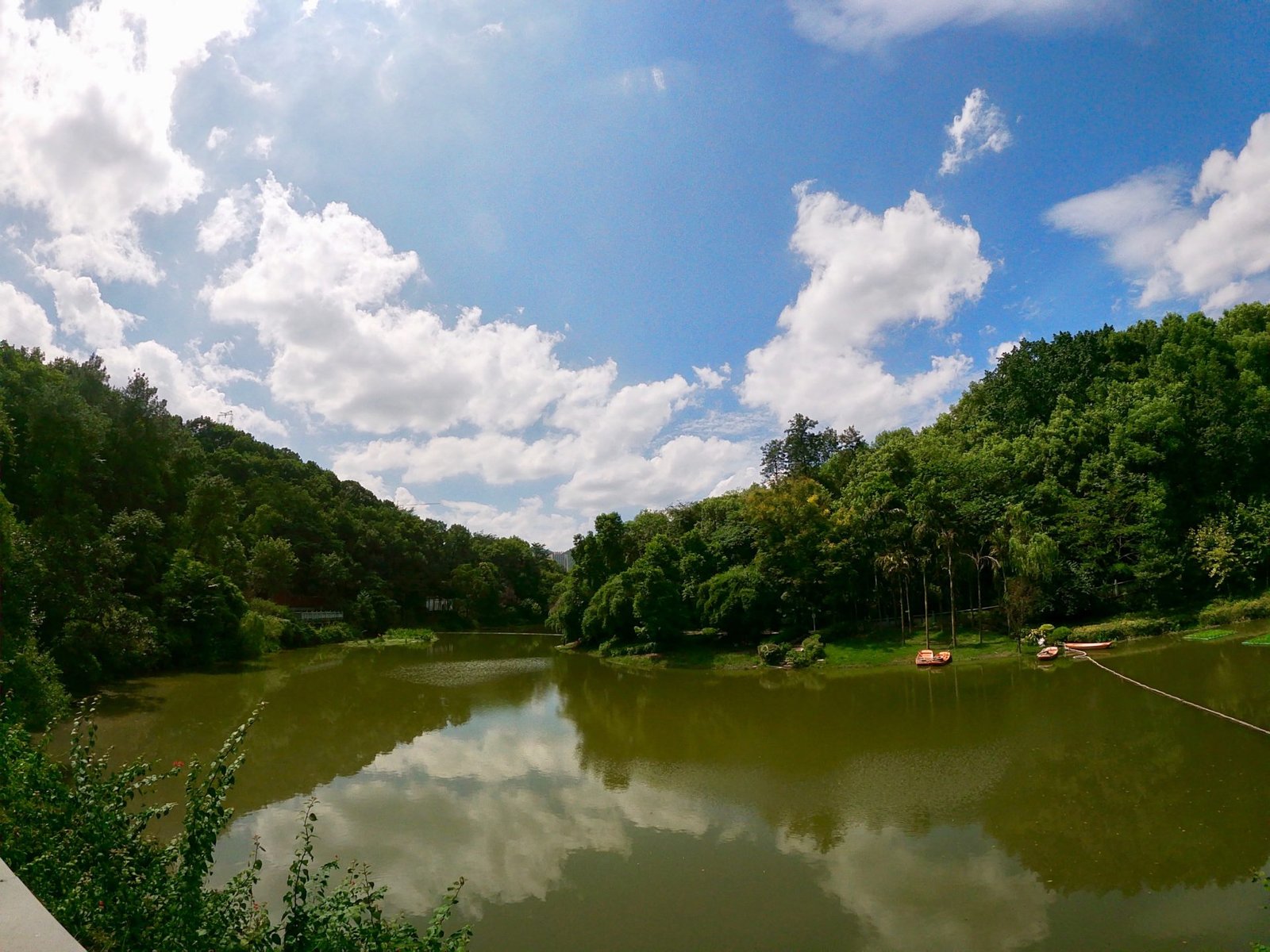
The lake that is located in the center of Huayan Park
How to Get to Huayan Temple
Huayan Temple is located in the Jiulongpo District of Chongqing, which is south of the river. It’s on Hauyansi Road, or Lu Hauyan Si (Si, pronounced suh, means temple), and isn’t very far from the Chongqing West Railway Station.
By taxi: Huayan Temple is a little out of the way from the center of Chongqing (if you’re staying in Jiefangbei, for example), but a taxi drive would still be less than $8. Taxi drivers should know where to take you if you just tell them Hauyan Si. Or you can call a Didi (China’s version of Uber) and put in Huayan Temple.
By bus: Unfortunately the metro doesn’t stop anywhere nearby, so the alternative would be to take either the 268 or the 325 bus, which will take you there directly. There are probably a few other buses that go this route as well if you plug it into a maps app such as Amaps (don’t use Google Maps, it’s very inaccurate in China). You can use your metro card on buses in Chongqing.
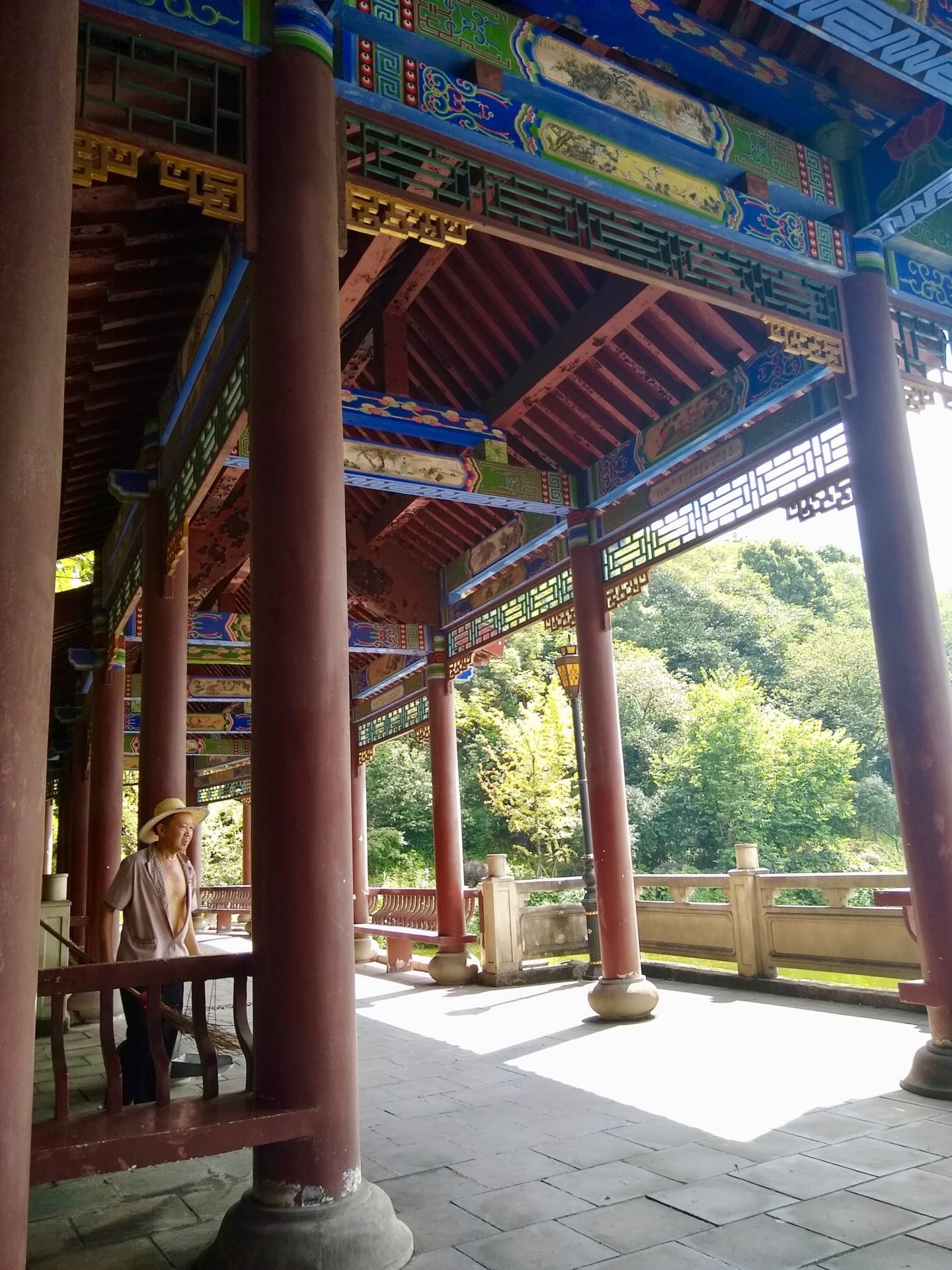
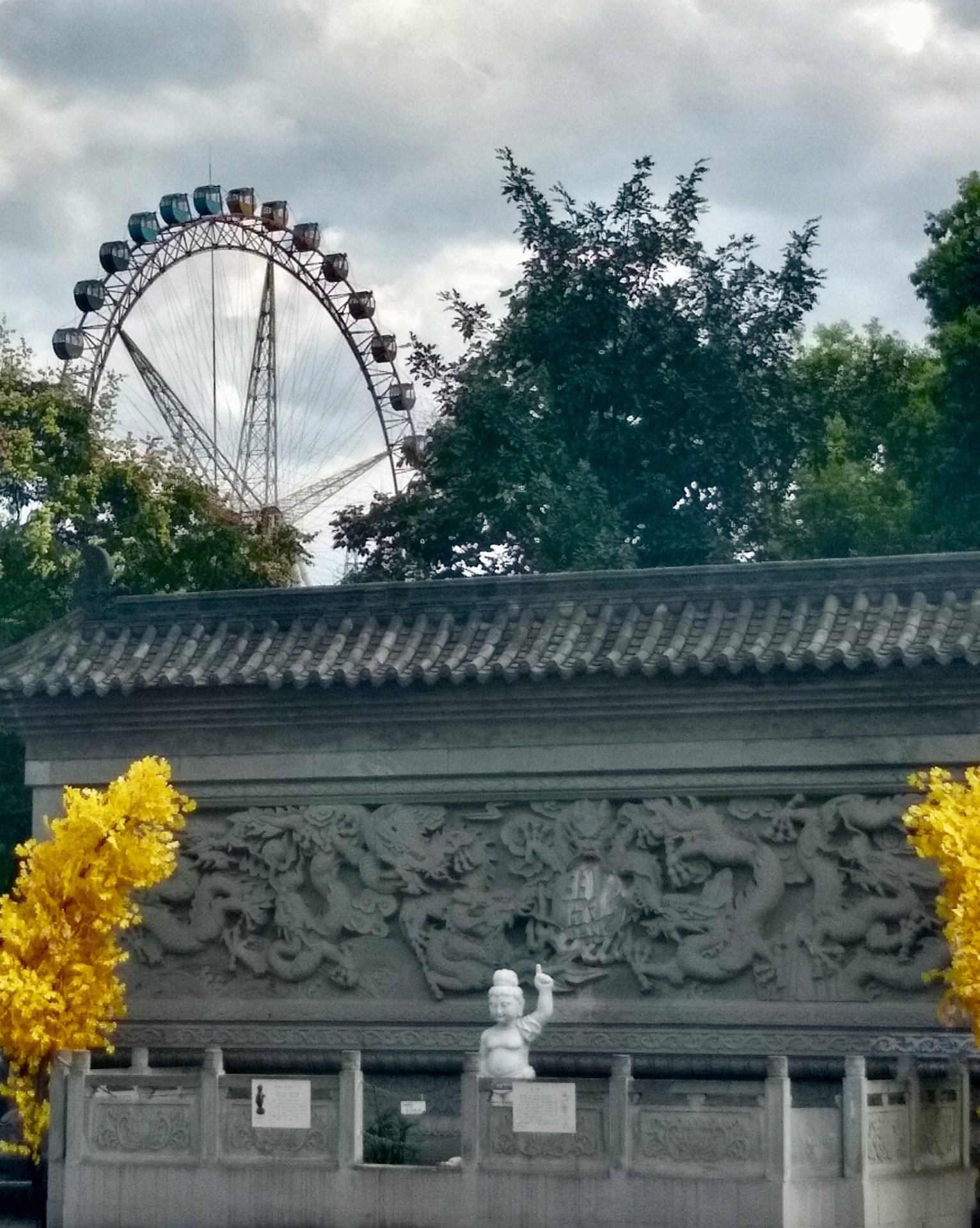
Entrance Fee
I didn’t pay an entrance fee, although you can put in a donation at the temple. There’s no forced donation, but it is courteous to put in some small change (they even have QR codes for you to pay using WeChat if you didn’t bring cash, so no excuses).
I read that there’s a 10 RMB entrance fee, but as stated I didn’t pay one. I went off-peak on a Wednesday, so next to no one was there. It’s possible that during more crowded times they charge a nominal fee to enter.
History of Huayan Temple
Quite frankly, I couldn’t find much of anything regarding the history of the Huayan Temple. Therefore, the majority of my information is derived from the placards that were displayed throughout the area. There’s much more information on the Huayan Temple in Shanxi Province, which is not the same temple. ‘Hua’ means flower in Mandarin.
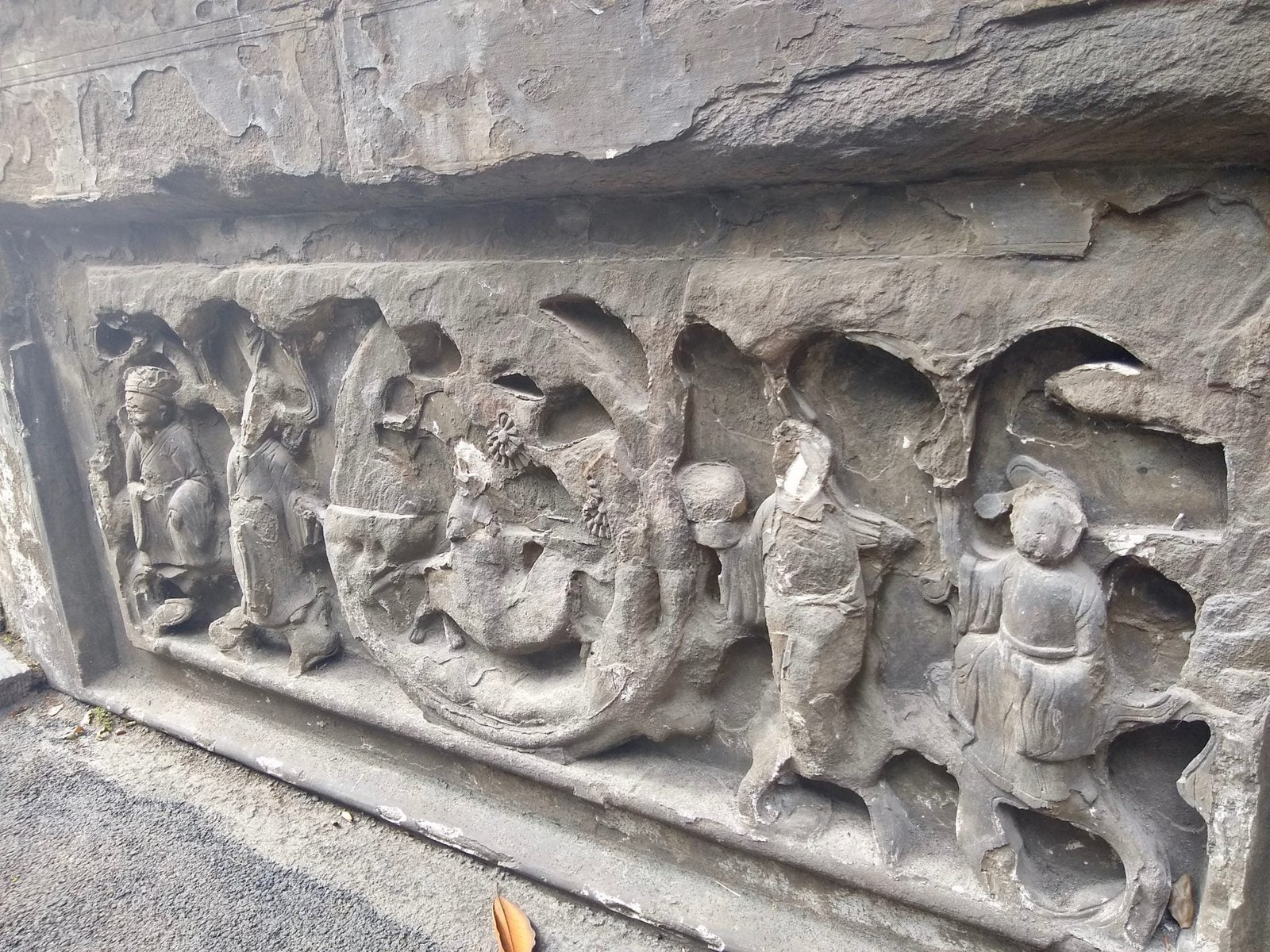
Beautiful handiwork at Huayan Temple
What I was able to ascertain was that the Huayan temple itself was built during the Ming and Qing dynasties. The Huayan Cave was perhaps built earlier, but definitely built/rebuilt during the Ming dynasty as well. The Chinese government has also added on some recent additions, such as the Big Buddha and the Magic Bridge, to help boost tourism. The temple itself has some beautiful different statues of important members in Buddhism, and is an operating temple so of course be mindful of people there that aren’t there as tourists.
Layout
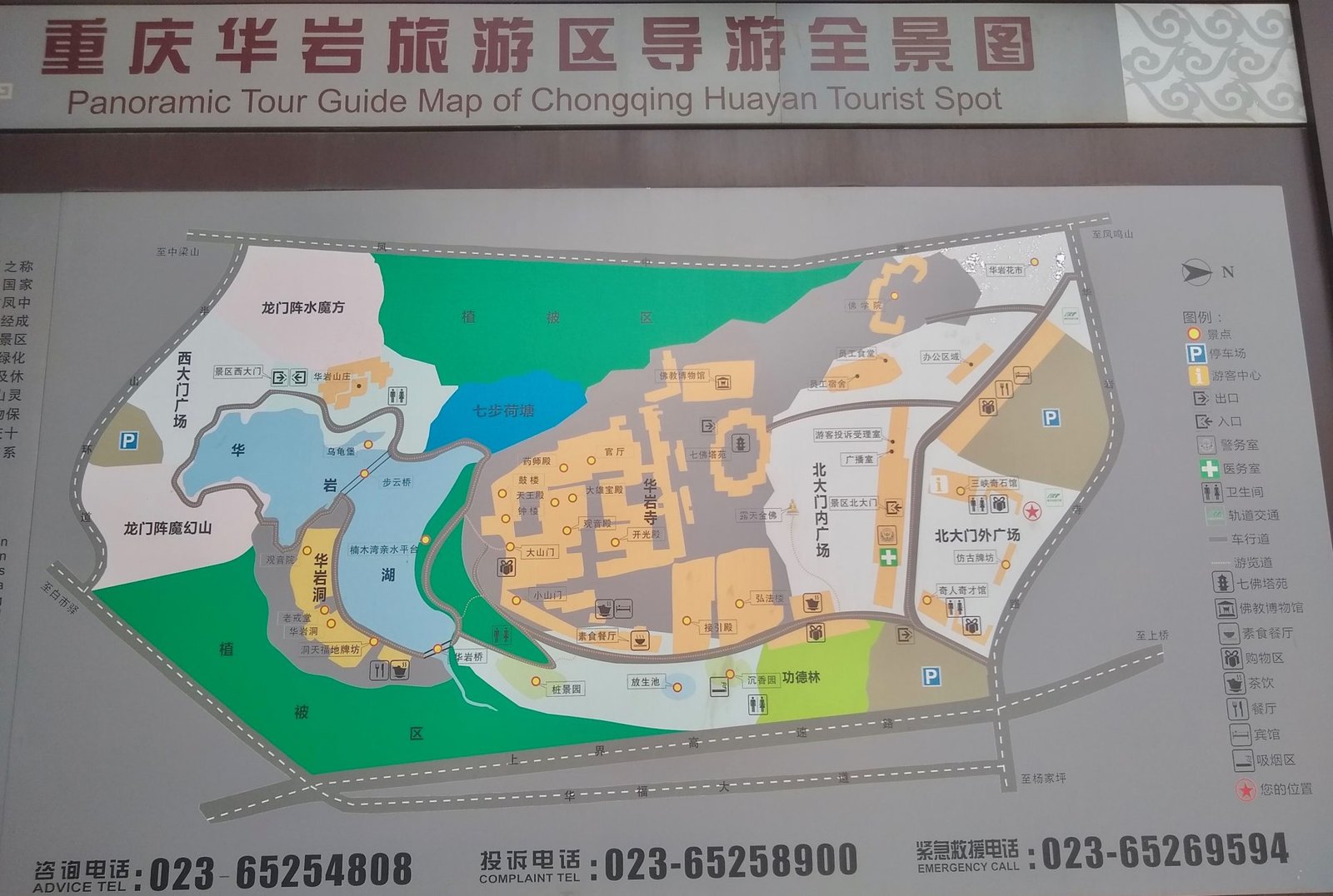
The Museum/Store
The museum/store is located just outside the entrance gates, and has a variety of different items to peruse. You can check it out either before you enter or as you’re leaving.
The Big Buddha
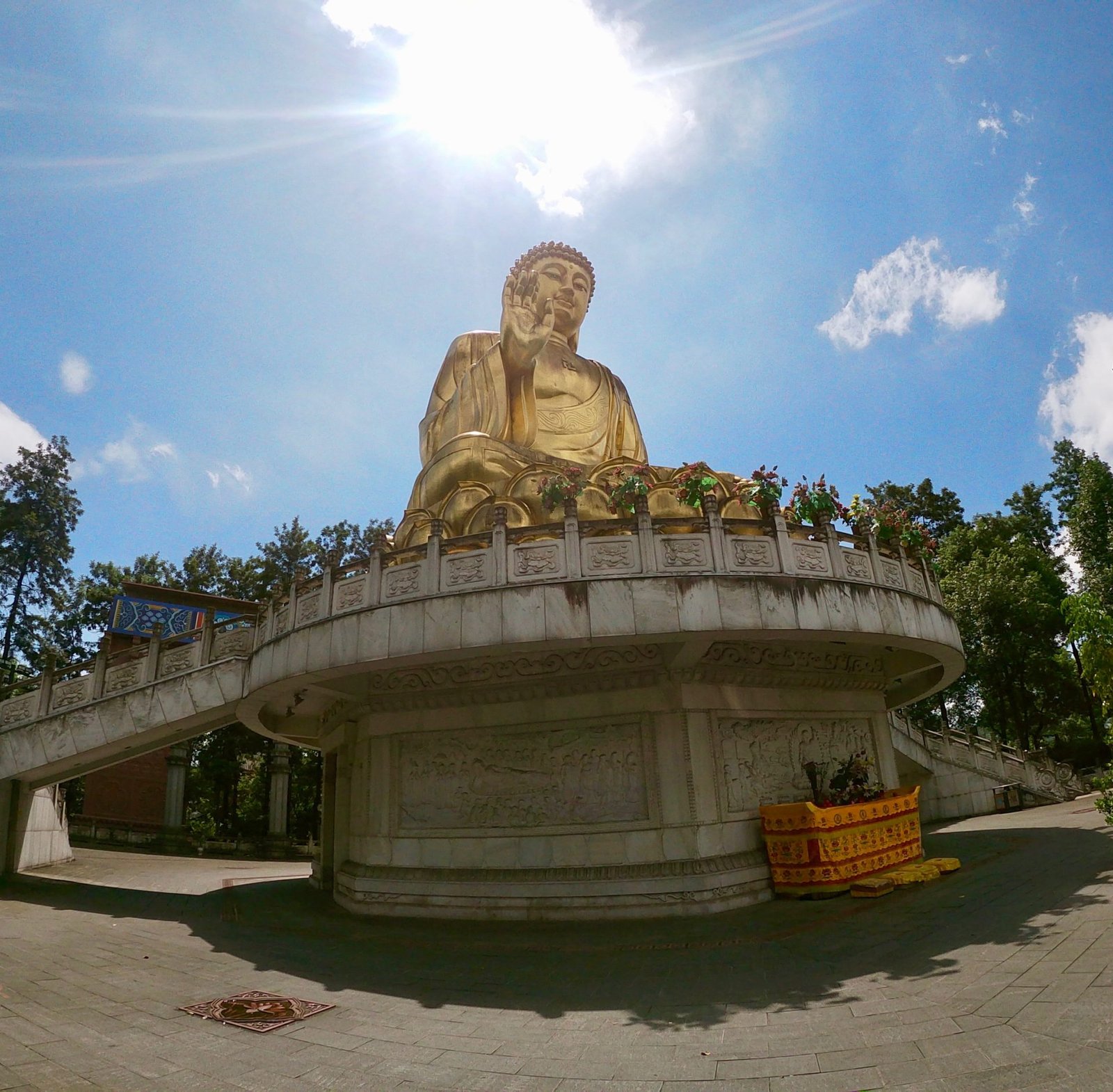
Impossible to miss, the big Buddha is situated right as you walk in from the main entrance. This was recently built by the Chinese government, and is one of the main pictures that you see when looking up the Huayan Temple.
Huayan Temple
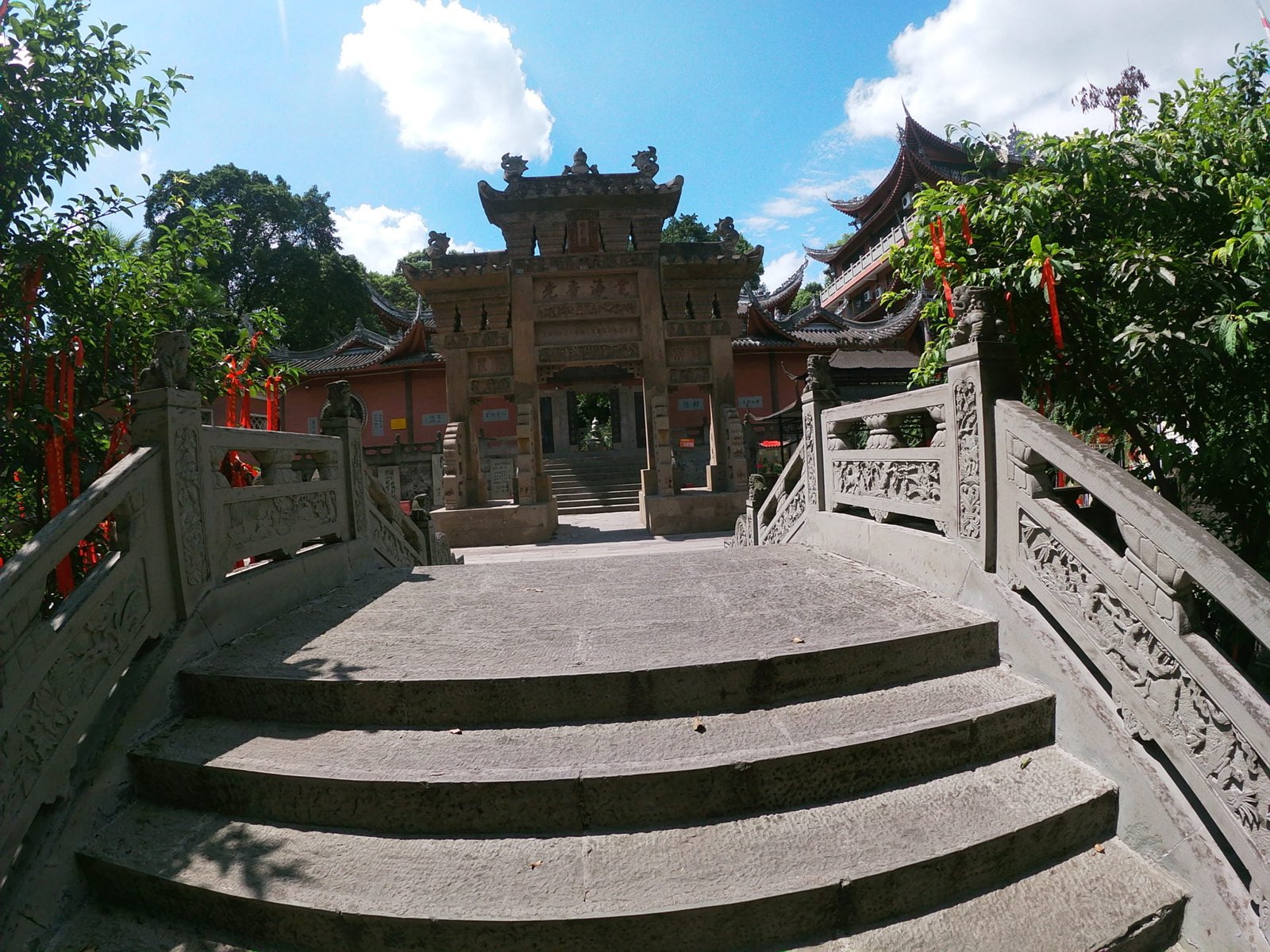
This Reception and Guidance Hall was built in A.D. 1819 during the Qing Dynasty, and took six years to complete. The architecture is stunning. The primary hall is where the Three Western Saints in Buddhism are worshipped: Amitabha, Avalokitesvara and Mahasthamaprapta.
Huayan Temple itself is quite large, and is made up of multiple different halls, complete with narrow staircases and alleyways to get to different sections. There are beautiful statues throughout, as well as some more information (in both English and Mandarin) describing specific halls. It’s located close to the teahouse and vegetarian restaurant.
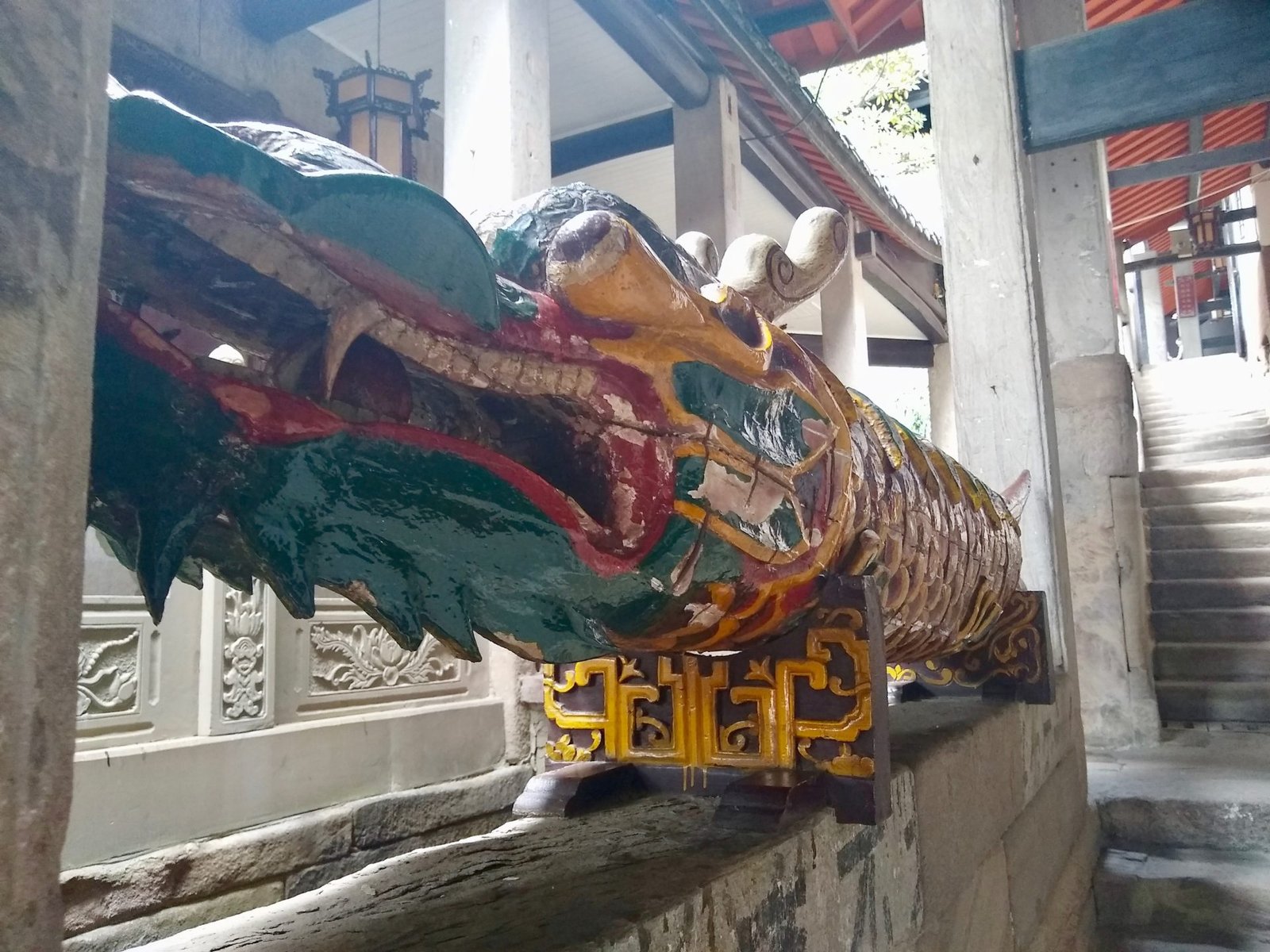
Teahouse & Vegetarian Restaurant
Many Buddhist sites are known for having delicious vegetarian food, and according to a few different sources this restaurant ranks high up within vegetarian restaurants in Chongqing. Stop for a bite to eat, or for some tea at the nearby teahouse if you’d like a rest.
There are also plenty of vendors right outside the entrance gate that sell little snacks if you’d rather not sit for a whole meal.
Huayan Cave
One of the coolest parts of this whole area, Huayan Cave isn’t too far from the main entrance and is worth the short walk. It is said that the temple may have been built before the Ming Dyansty, perhaps in the Tang Dynasty, but it’s known that during the Ming Dynasty a monk rebuilt the temple. It was again rebuilt years later.
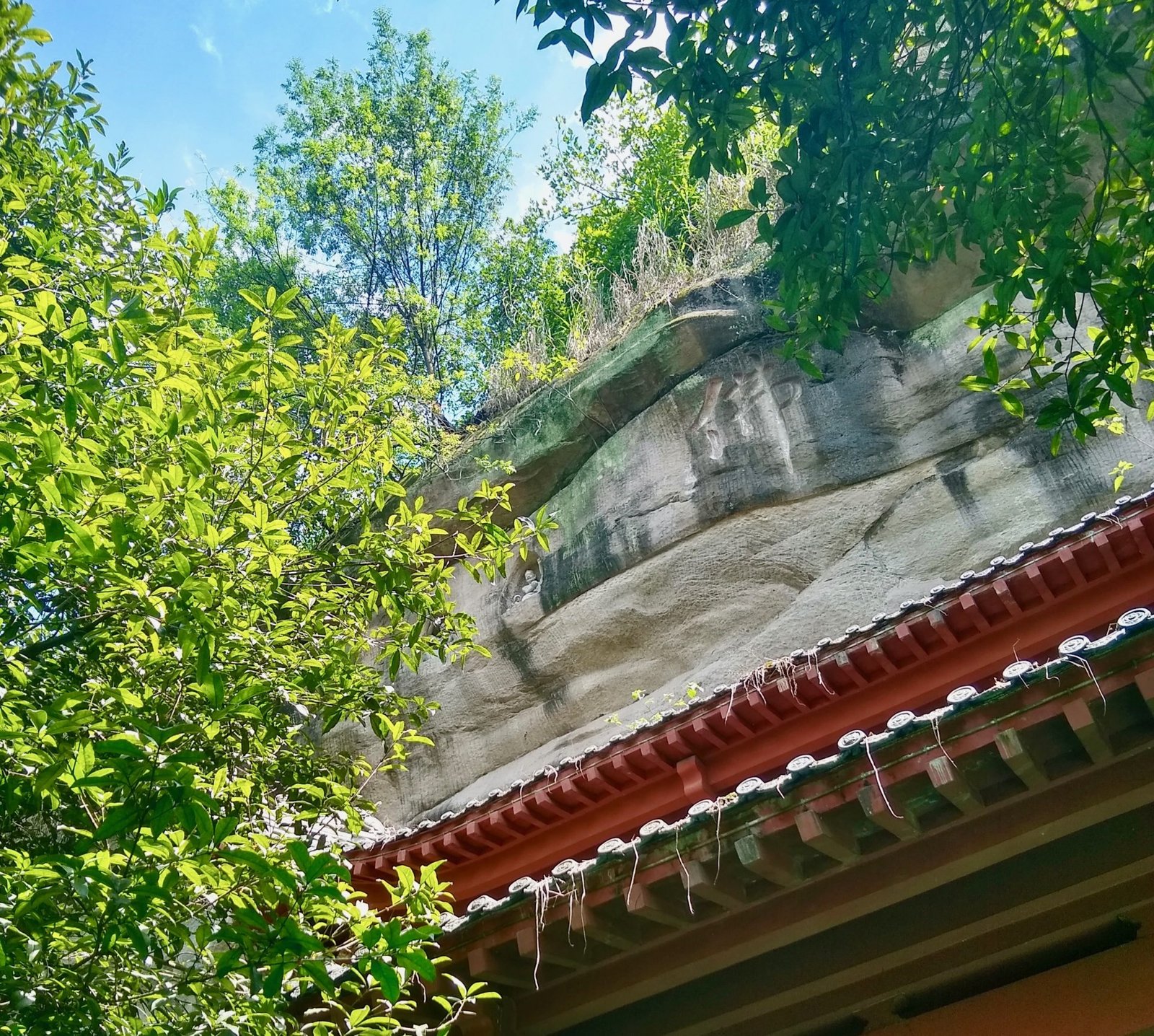
Look up!
The temple area itself is quite small, built into the cave, but the most interesting part of Huayan Cave are the carvings done above the temple on the cave walls. You can miss them if you don’t look up, so make sure you do.
The Hall of Avalokitesvara Buddhisatva
I believe this was closed when I went. The doors had signs posted on them. Apparently there’s a status of Avalokitesvara inside.
Magic Bridge
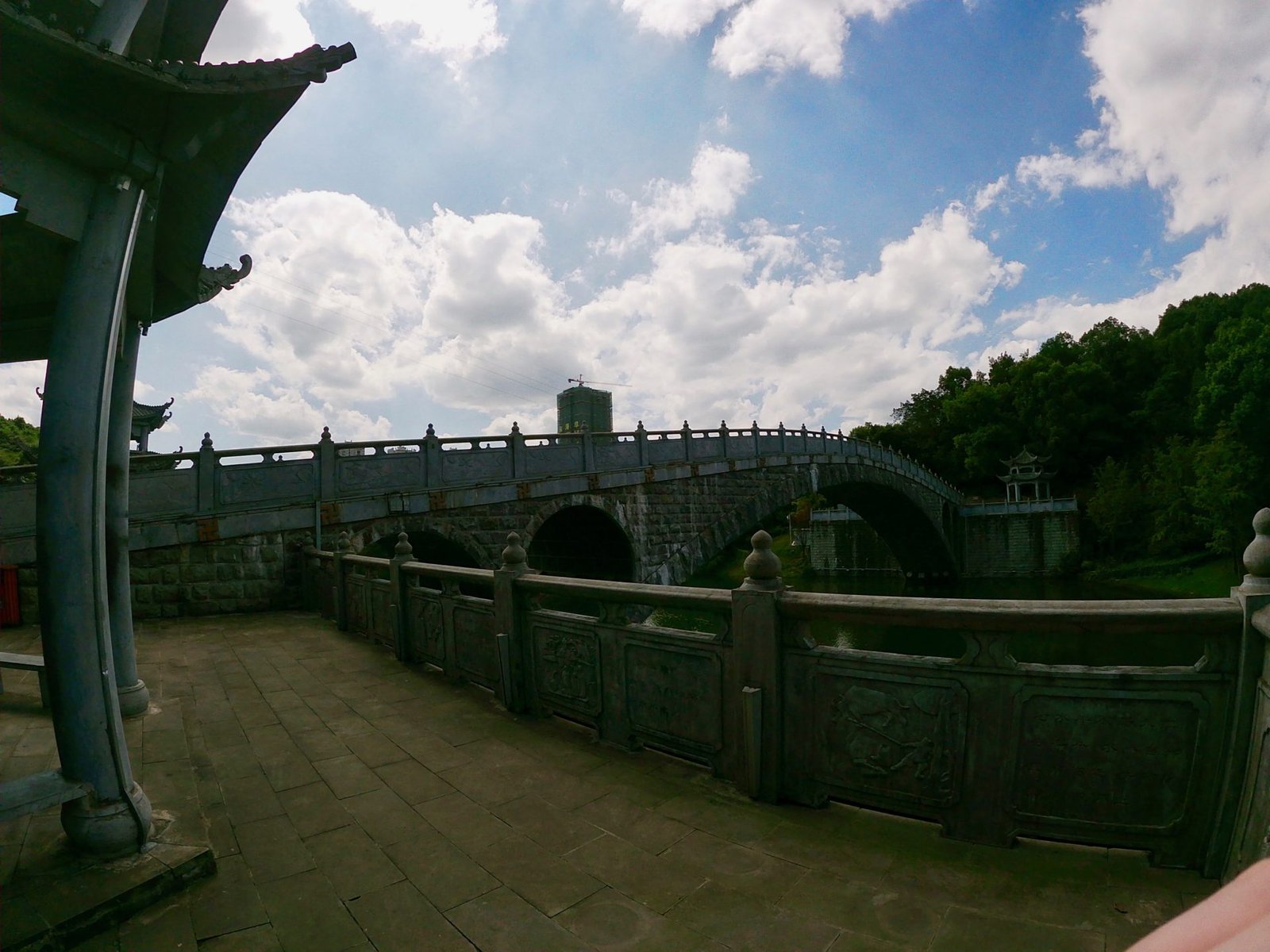
The magic bridge is a more recent addition to the Huayan surrounding area, and construction was completed in 2015. According to the sign posted, the bridge cost 10 million yuan to build. It’s a beautiful arch bridge with stories engraved all along it. You can see nice views of some of the hills in the distance, as well as a few random buildings and the infamous ferris wheel.
The magic bridge is convenient in that you can cut out a large chunk of walking if you don’t want to walk all the way around the lake, and can head over to the lotus pond after viewing the Huayan Cave.
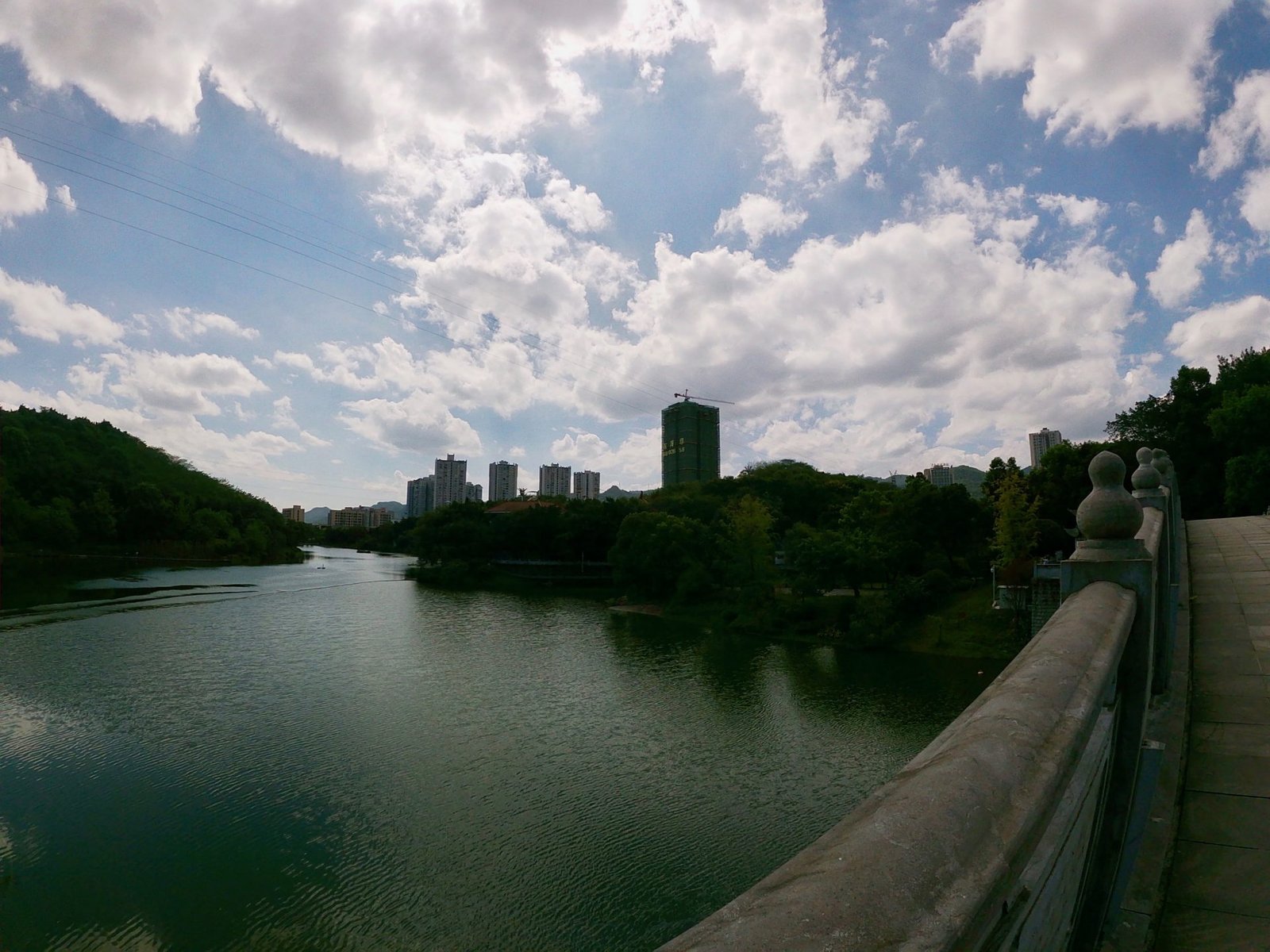
Lovely views from the Magic Bridge
Seven-Step Lotus Pond
The lotus is incredibly popular within Buddhism. Legend has it that Shakyamuni walked seven steps when he was born, and each time a lotus grew, hence the place being named the Seven-Step Lotus Pond.
In some areas the lotus’were wilted and looked slightly dead, but the beginning area was well-kept. You can walk a full circle around, and there are multiple crossways across as well.
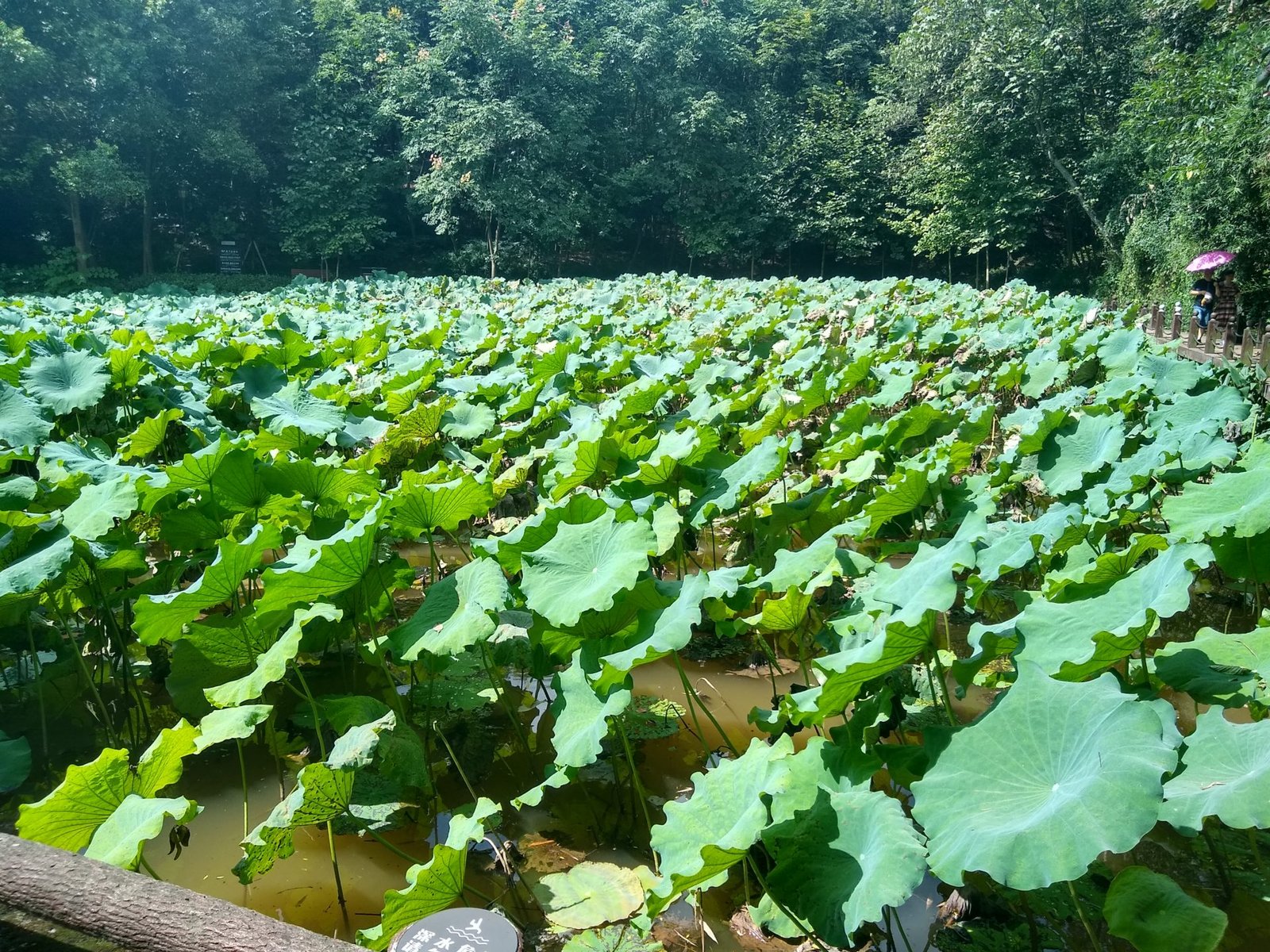
In Conclusion
Huayan Temple is a perfect option for anyone staying longer than a few days in Chongqing that wants to explore some less well-known options. It’s quite convenient to get to and has a lot of accessible walkways, as well as a few dirt paths (that don’t really lead anywhere, but are fun to walk down anyway). You can see architecture styles from the Ming and Qing Dynasties, and also observe an active temple environment.
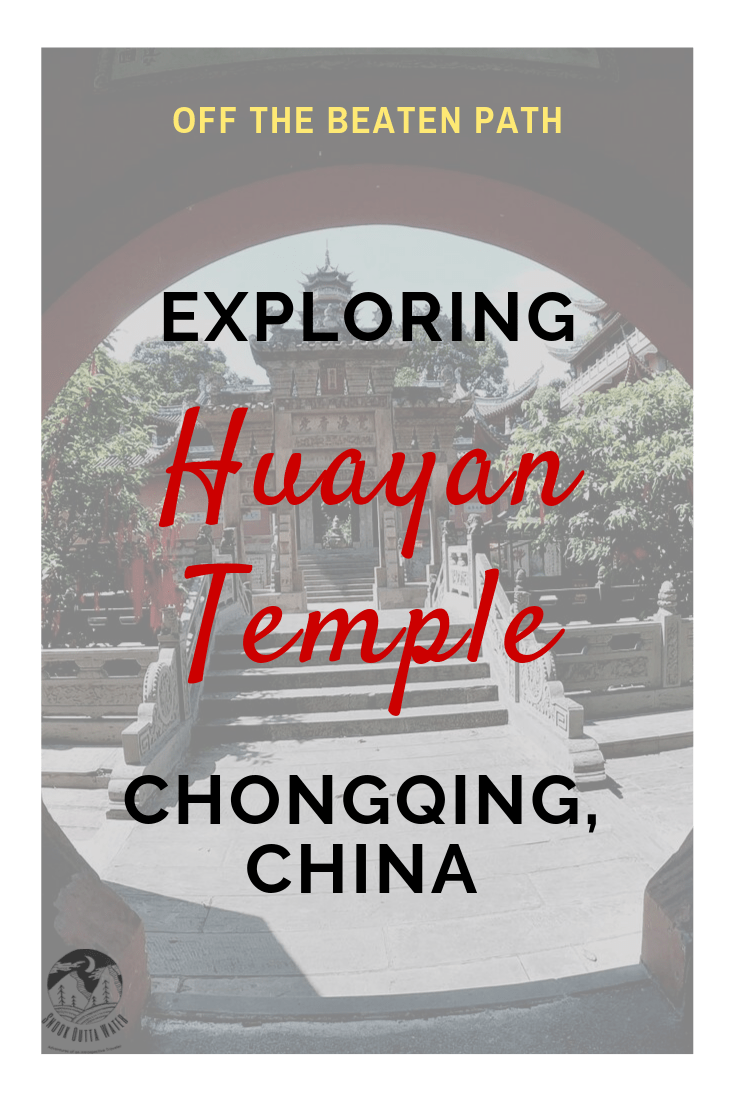
Subscribe to receive Snook Outta Water’s monthly newsletter with exclusive updates and content.
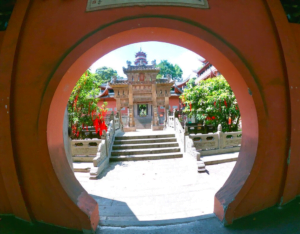
Leave a Reply